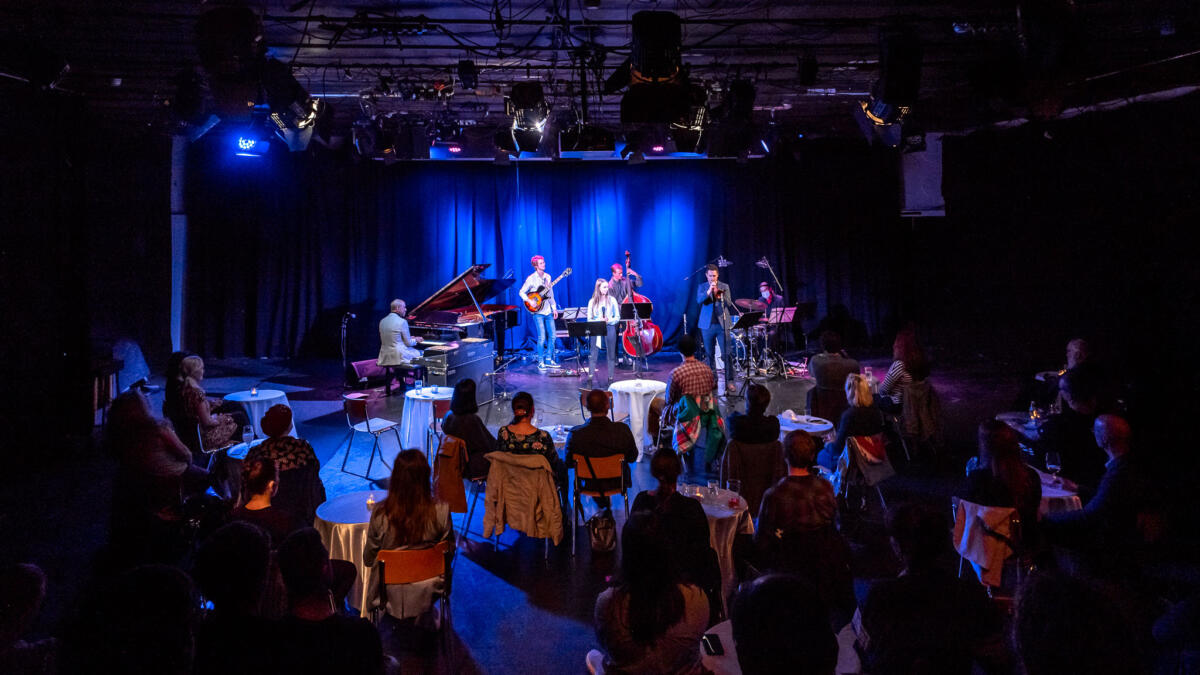Afro-American heritage is highlighted more strongly than before in the Sibelius Academy’s 40-year-old jazz education
In recent years, a more extensive understanding of the roots of Afro-American music has shaped jazz studies as well as the way we discuss the genre’s history and performance practices.

This year marks the 40th anniversary of jazz studies at the Sibelius Academy. Four decades ago, launching this new study subject was a unique, new thing on an international scale. In those days, it was quite exceptional that a classical music institute began providing studies also in jazz music. The Jazz Department has trained nearly all prominent jazz musicians of the last decades in Finland.
“Jazz studies started at the Sibelius Academy because there was a clear need for it in the Finnish cultural scene. The training has a bright future ahead of it, as long as we’re actively involved in the international jazz community and contribute to discussions on the latest educational issues,” notes Lecturer in Jazz Sami Linna.
Questions of cultural appropriation and the decolonisation of education in music
In recent years, the connection between jazz and Afro-American culture has grown increasingly stronger in education. People talk more and more about questions of cultural appropriation and the decolonisation of education in the field of music. Students have pointed out the meaning of the Black Lives Matter movement to jazz music, in particular, and raised awareness of various cultural appropriation issues that they have observed in the practices of their field.
“In the past years, there have been more and more discussions on the extent that university-level jazz education takes the premise of Afro-American culture into consideration and how much emphasis is placed on other aspects, especially the traditions of European art music,” Linna notes.
The discussion has entered deeper levels thanks to US-born jazz drummer, composer, bandleader and ethnomusicologist Dana Hall, who came to the Sibelius Academy as a visiting professor in August 2021 from DePaul University in Chicago. The purpose of Hall’s two-year professorship has been to strengthen the understanding of Afro-American cultural tradition in the academy’s Department of Jazz and to develop cooperation with American universities.
“In the United States, too, jazz education has struggled finding its place within universities that have traditionally focused on European art music, where the typical values of classical music have often been highlighted at the expense of others. Traditionally in jazz music, musicians grow into significant artists by playing in ensembles led by more experienced musicians, but this practice hasn’t really lived on in the context of formal training. This aspect of formal training has received critique, and education is often regarded as an instrument of white supremacy, along with the media and music industry,” Linna explains.
An international jazz conference coming up on globalised teaching
The anniversary year of the Jazz Department is celebrated through various events, including the international IASJ Jazz Meeting, which will gather students and teachers alike to discuss the Afro-American roots of jazz music and their role in the future as education gets more and more globalised. This year, the Sibelius Academy will host the event at the Helsinki Music Centre from 26 June to 2 July 2023. Dana Hall will hold a keynote lecture on how we can be more aware of the Afro-American traditions of jazz and take them into consideration in teaching at different institutions, in different countries and within different cultures.
“From the perspective of global inequality, there is not a single degree programme that could justify its isolation from this conversation. Europeans, especially, have good financial opportunities to study Black music at a university, while African Americans do not have equal chances to study their own cultural heritage and pursue university careers,” Linna explains the overarching theme for the conference.
The event’s programme features lectures, master classes and keynote speeches. During the week, students will work in ensembles, which will be led by Sibelius Academy honorary doctors and top musicians Dave Liebman, Tim Hagans, Anders Jormin and Aaron Goldberg, along with Professor Jukkis Uotila and drummer Savannah Harris.
During the evenings, the event takes over the city in the form of jam sessions, concerts, movies and other encounters taking place at G Livelab, Konepaja, Riviera Kallio, Tenho Restobar and Harju 8 Restaurant. The final concerts will be organised in Black Box at the Helsinki Music Centre, and a handful of tickets is also available for sale for the general public.